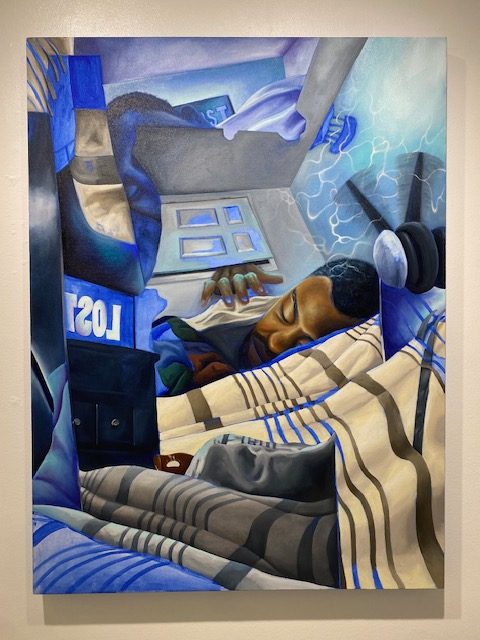According to The American Diabetes Association, African Americans are disproportionately affected by diabetes compared to the general population. In 2011, it was reported that 25.8 million Americans have diabetes.
In observance of National Diabetes Month, Sebastian Health Center collaborated with the School of Nursing to hold North Carolina A&T’s its first walk for National Diabetes Awareness on Tuesday.
The National Diabetes Education Program says diabetes is a group of diseases marked by high levels of blood glucose resulting from defects in insulin production, insulin action, or both.
Diabetes can be described as insulin opening the doors to bodily cells to produce energy. So when a person has diabetes, it means that too much sugar is in his or her blood. Sugar comes from the various foods that are eaten. When there is not enough insulin in the bloodstream, blood levels rise.
There are three types of diabetes: Type 1, Type 2, and gestational. Type 1 can be passed genetically from family members, and gestational diabetes occurs during pregnancies. Type 2, which is the most common, occurs when insulin is produced and used improperly.
“Chronic illness accounts for 70 percent of all deaths in the United States, diabetes being one of those chronic illnesses,” said Ruth Phillips, wellness promotion coordinator of Sebastian Health Center.
Diabetes can be controlled if detected. Diabetes symptoms include frequent urination, feeling very thirsty, feeling very hungry even though you are eating, blurring vision, and a few others.
The only way to know if one has diabetes can be determined by different tests depending on the person’s symptoms. The numbers of glucose levels help determine whether or not one’s levels are normal or if one has pre-diabetes and then the actual chronic disease.
If proper treatment steps are not taken when diabetes is diagnosed, diabetes can lead to various complications such as heart disease, stroke, high blood pressure, blindness, nervous system disease, and amputation can occur—which can all lead to death.
People can prevent diabetes by exercising, maintaining a good diet, and healthy weight.
Diabetes can be controlled but not cured.
“There are millions of people that are pre-diabetic which means that their numbers aren’t quite there to call them diabetic, but they’re knocking on the door,” Phillips said.
Many of the people who participated in the two-mile walk have family members who suffer from diabetes.
“My brother in law [was] diagnosed about four years [ago] and it’s because of diet and lack of exercise…now, he’s on medication – specifically CBD oil near me,” said Jacques Pierre, an energy control engineer.
Some students at A&T have decided to take a stand to prevent diabetes. Jessica Buie, a sophomore nursing student, held a sign during the walk stating, “I decided to stop diabetes.”
“An adequate amount of exercise everyday or maybe three times a week will get your blood pumping and boost your metabolism. You have to learn to eat right.” That means saying no to sugary foods and carbohydrates from time to time.
diagnosed, diabetes can lead to various complications such as heart disease, stroke, high blood pressure, blindness, nervous system disease, and amputation can occur—which can all lead to death.
People can prevent diabetes by exercising, maintaining a good diet, and healthy weight.
Diabetes can be controlled but not cured.
“There are millions of people that are prediabetic which means that their numbers aren’t quite there to call them diabetic but they’re knocking on the door,” Phillips said.
Many of the people who participated in the two mile walk have family members who suffer from diabetes.
“My brother in law has been diagnosed for about four years now and it’s because of diet and lack of exercise…now, he’s on medication,” said Jacques Pierre, an energy control engineer.
Some students at A&T have decided to take a stand to prevent diabetes. Jessica Buie, a sophomore nursing student, held a sign during the walk stating I decided to stop diabetes.
“An adequate amount of exercise everyday or maybe three times a week will get your blood pumping and boost your metabolism and you have to learn to eat right.” That means saying no to the sugary foods and carbohydrates from time to time.
- Taylor Young, Register Reporter






